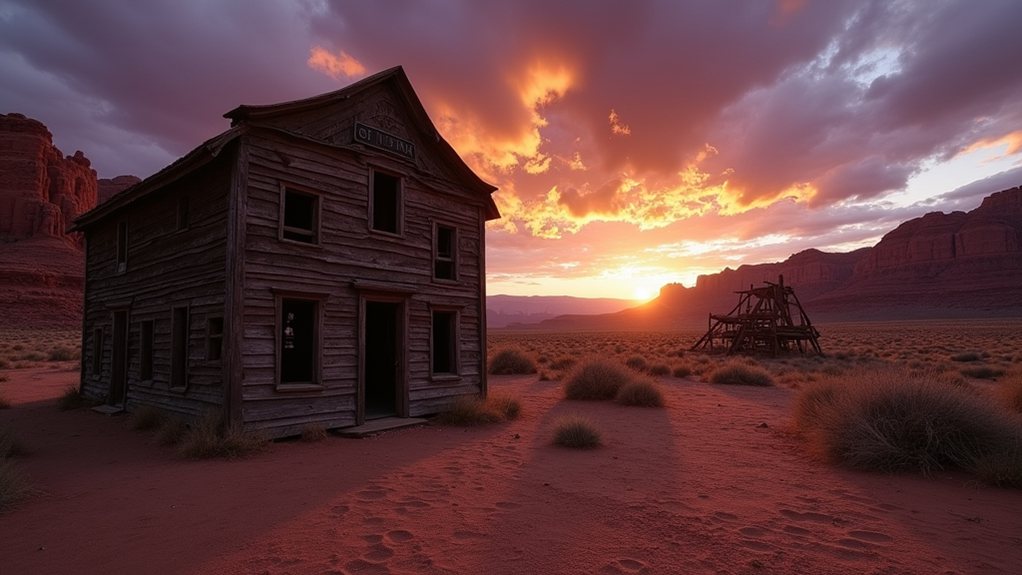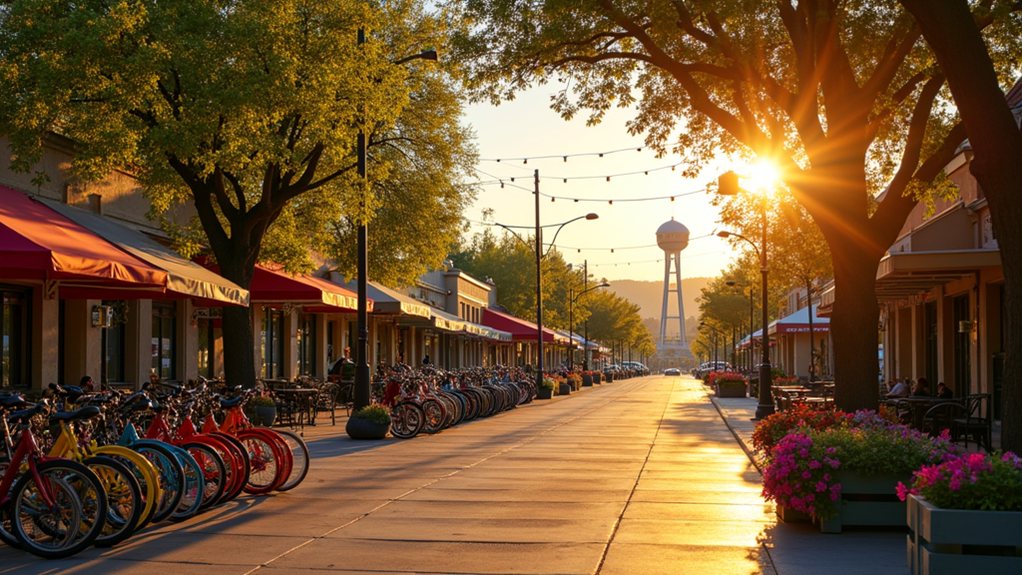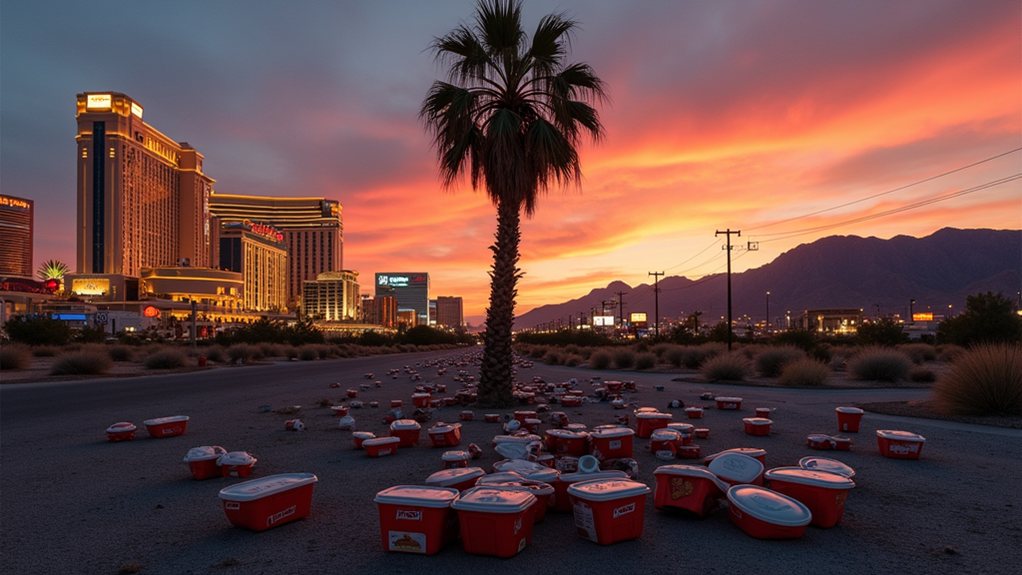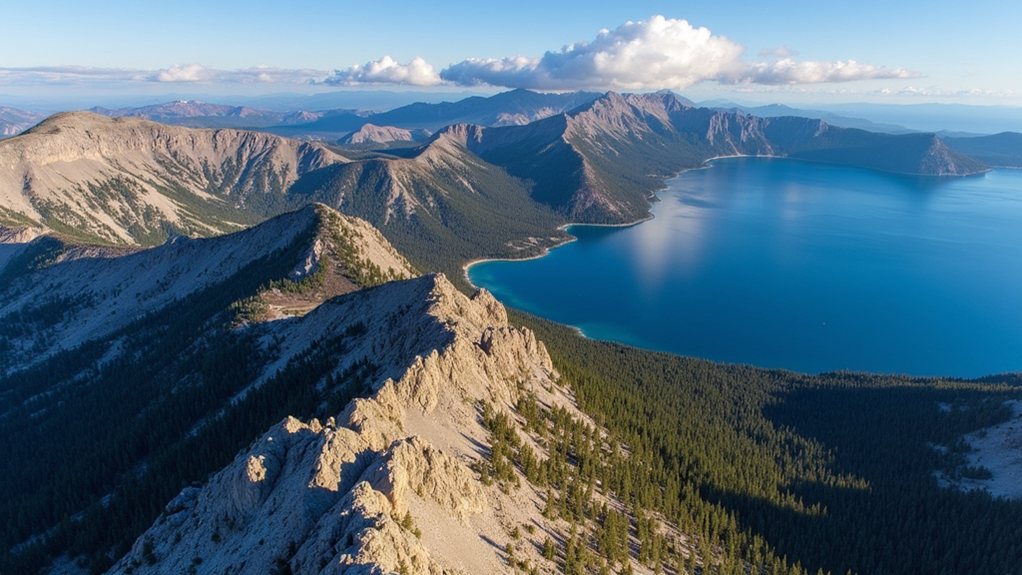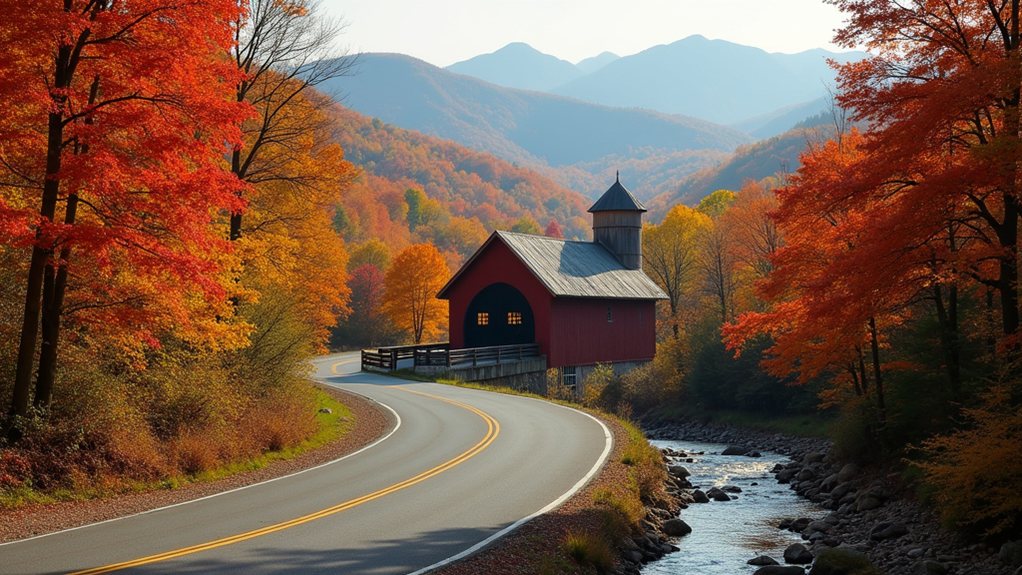Nearly 4 million visitors trek through Nevada’s ghost towns annually, yet few experience the haunting beauty of the Death Drive‘s full 370-mile stretch. This rugged route winds from Las Vegas through the crimson formations of Red Rock Canyon and into Death Valley’s parched expanse, where temperatures have soared to 134°F. Along the way, time-frozen mining settlements like Rhyolite and Goldfield stand as eerie monuments to boom-and-bust cycles that shaped the Silver State’s character. What hidden stories wait in these abandoned saloons and collapsing mine shafts?
Beyond the Strip: Nevada’s Historic Ghost Highway
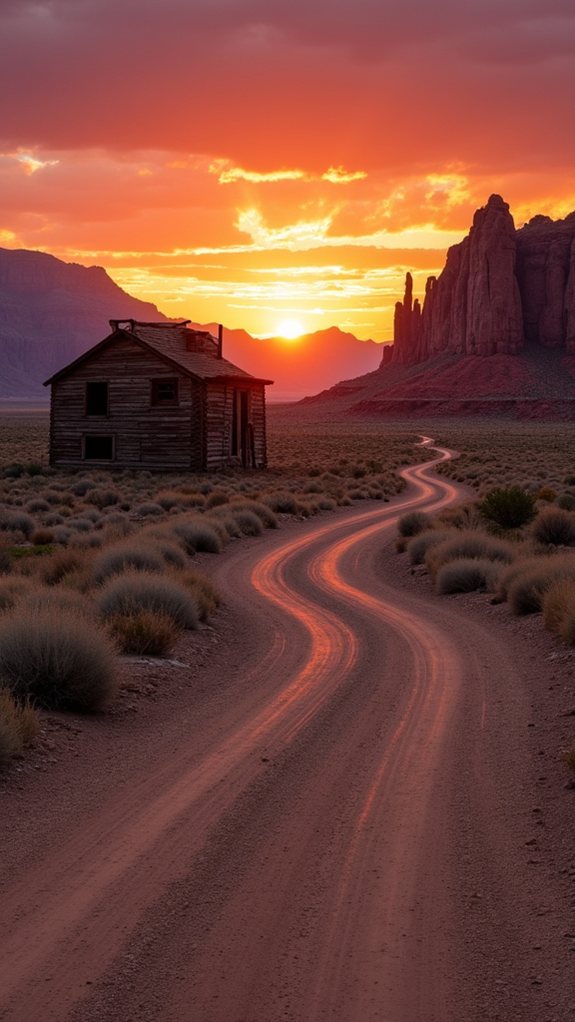
While Las Vegas draws tourists with its neon-lit excess, Nevada’s true character lies beyond the Strip, along a 370-mile loop known as the Death Drive. This haunting expedition begins in Vegas before winding through western Nevada’s rugged terrain, where adventure seekers encounter stunning landscapes and the skeletal remains of once-bustling mining towns.
The route’s natural wonders form a striking backdrop, with Red Rock Canyon‘s crimson formations standing in stark contrast against the azure sky. As travelers push deeper into Nevada’s heartland, they’re treated to the otherworldly vistas of Death Valley National Park and the puzzling Sand Mountain Dunes, known for their mysterious “singing” sounds when wind passes over the sand. This phenomenon resembles the Great Kobuk Dunes found in Arctic Alaska, where sand formations exist in surprising contrast to their surrounding environments.
Rhyolite, perhaps the route’s most photogenic ghost town, once housed 5,000 souls during Nevada’s mining heyday. Today, its partially intact bank building and bottle house tell tales of boom-and-bust cycles that defined the state’s development. These settlements, born of silver and gold rushes in the mid-19th century, thrived briefly before economic realities forced mass exoduses.
The expedition also includes Goldfield, where 30,000 fortune-seekers once roamed streets now inhabited by just a few hundred residents. Its haunted hotel stands as a monument to more prosperous times. Nearby, Berlin’s remarkably preserved structures offer glimpses into daily mining operations, carefully maintained by Nevada State Parks.
Adventurers will find Pine Grove particularly fascinating as one of the first settlements in Northern Nevada, with its three distinct sections showcasing different aspects of frontier life through remaining rock walls, stamp mill ruins, and a historic cemetery.
Travelers should prepare thoroughly before initiating this adventure, as many segments feature rough terrain with limited cell service and amenities. A reliable vehicle, preferably with four-wheel drive, proves crucial for traversing the route’s variable conditions.
Smart adventurers pack extra water, emergency supplies, and share their itineraries with others. The stark health disparities that plague Las Vegas with its poor air quality and limited healthcare access fade somewhat as explorers venture into Nevada’s less populated regions.
For those seeking authentic Nevada experiences beyond casino floors, the Death Drive delivers a raw, unfiltered connection to the state’s boom-and-bust heritage. In Virginia City, widely considered the most haunted place in Nevada, almost every historic building harbors ghostly residents from the town’s prosperous mining era. Each abandoned saloon, collapsed mine shaft, and weathered headframe serves as a poignant reminder of human ambition and nature’s eventual reclamation of even our most determined efforts.

